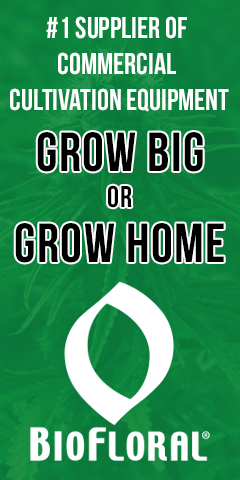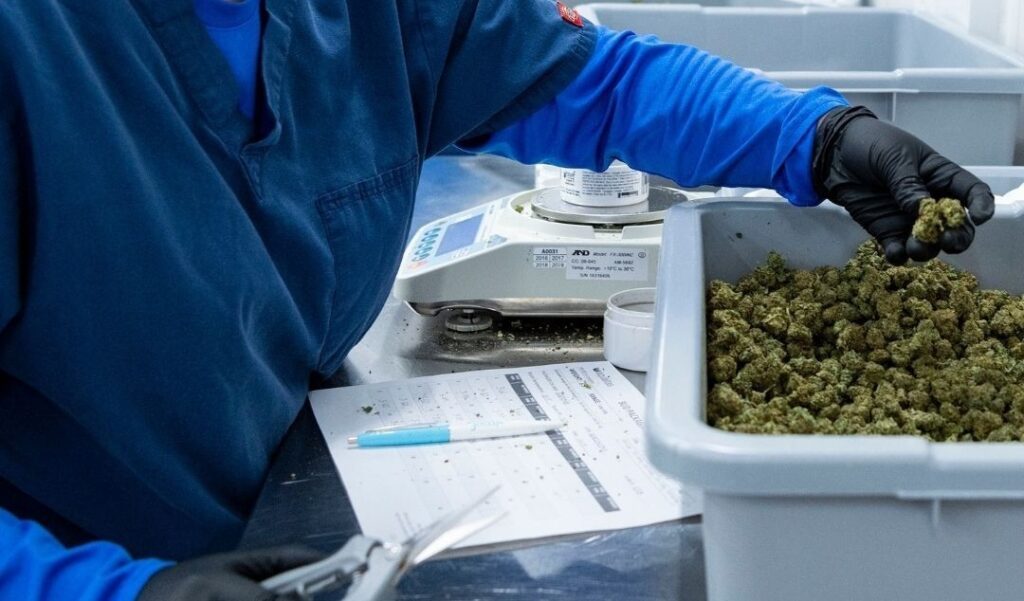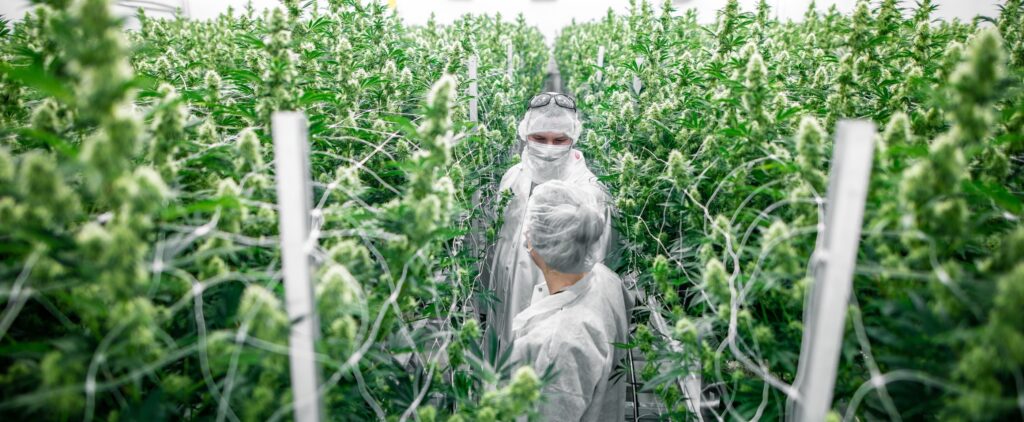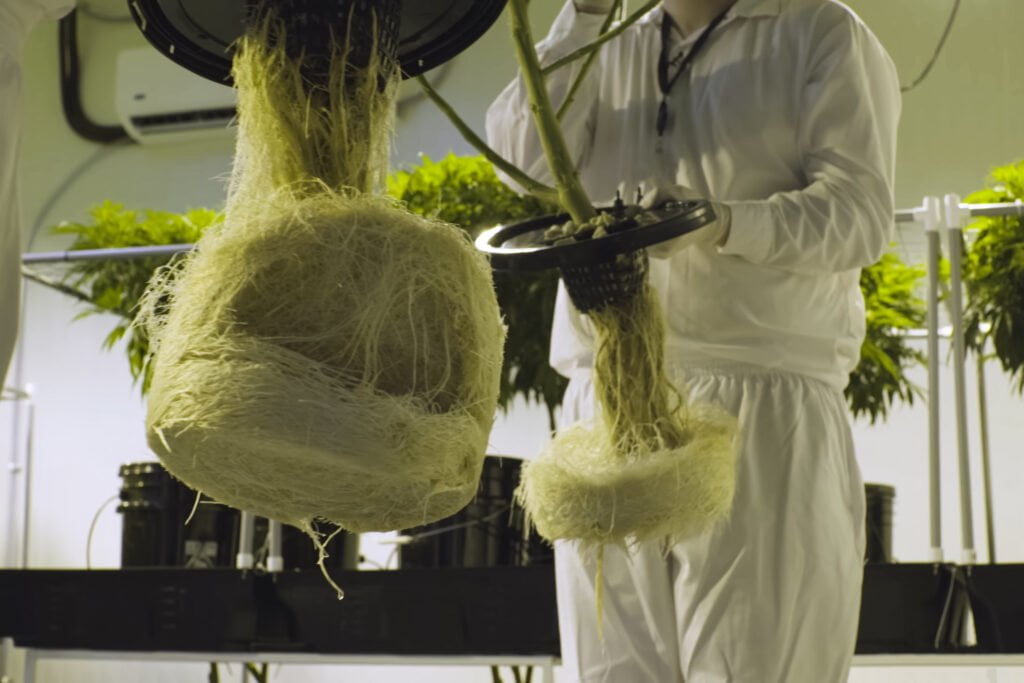7 Ways How Master Growers Can Build A Strong Relationship With Their QA
Growing high-quality cannabis would not be possible without a cooperative team. In this The Grower’s Source panel called ‘Master Growers and QA: How to Foster Collaboration’, speakers Alexandre Gauthier and Monica Maillé discuss the reality of working in a federally licensed facility and describes the importance of team work and collaboration between departments.
- Alexandre Gauthier, or Alex, is currently a master grower at Origine Nature, a Quebec-based licensed producer. He has about 16 years worth of experience in Cannabis and has been in the industry for over four years.
- Monica Maillé has been working in the cannabis space for nearly 2 years now. She is a recent graduate from the Commercial Cannabis Production Program at Niagara College and is currently working as a Quality Assurance / Quality Control Manager at Isaacann Health Group Inc.
Before we get to how you as a grower can have a better relationship with your QA, let us first look back at the history of cannabis legalization in Canada. Having a better comprehension of the legalities of the cannabis industry and knowing how to properly understand the Cannabis Regulations and Act is the first step in bettering the relationships amongst staff, especially with the quality department, as an essential part of their job is making sure the company is compliant with Health Canada’s regulations.
Regulation and Legalization of Cannabis in Canada

The legalization of therecreational and medical market in Canada has proven to be successful and has gained the interest of people worldwide. Being that Canada is one of the first countries to have complete legalization of cannabis, it serves as a basis for other countries who are also hoping to achieve legalization. These new regulations have been difficult and frustrating for many growers because there has been countless new growing restrictions and parameters that need to be followed, which proves harder than expected. However, overall it is for the better, as all licensed producers have the same guidelines and must meet the same requirements, leaving little to no room for error.
One important component of legalization is standardization, which is a way to make sure that consumers consistently know what is in the product. Alex emphasizes that this process is important because it allows cannabis and its products to get to the next level, to become a true medicine and product that can be consumed on a daily basis. Regulations ensure that every product can be traced to their origins, is stable, and provides a guarantee of quality to its consumers, whether for recreational use. Cannabis legalization in Canada has come a long way throughout the years, but there is definitely still room for improvement.
“I’m very proud of the Canadian cannabis industry and how far we’ve come since legalization. We are definitely being looked at from other countries in terms of how we got to legalization and how we’re evolving in the industry. I am excited to see what happens next”.
—– Monica Maillé, C45 Quality Association Intern & QA/QC Manager at Isaacann Health Group Inc.
Traceability is another crucial aspect in the regulation of cannabis. It is important to ensure the accountability of all things from seed to sale to ensure the safety of all consumers. A master grower should be able to answer any question regarding their product, including anything that was used for growing it, such as growing media, nutrients, etc. We cannot know everything about cannabis that we grow, but if there are any adverse reactions to the consumer or a recall on the product, then the master grower and QA manager should be able to trace it back to the source, which should help correct and prevent any further issues in the future.
Standardization does present some potential problems. It can be frustrating for a genuinely passionate grower to grow under an ACMPR License in their basement, doing the best they can to take care of their plants, adding whatever nutrient or fertilizer they want from the hydroponics supply store, and growing great plants, only to end up coming into battle against the legal Canadian industry and not being able to sell their products. The regulations may be strict, but growers should understand that these regulations are set in place to ensure that the future of cannabis flowers and all of its derived products remain safe and abundantly available to consumers.
Complying with traceability is a major challenge for any grower because it requires keeping a thorough and systematic
record of everything done at the facility throughout the day. All information from the date of propagation up until distribution must be recorded. There is always a lot of paperwork to fill out, parameters to record, nutrient and pesticide applications to log, and problems to document. The work may be a burden at times, but the end results are worth it. Having an organized record of every parameter and variable means that the grower can analyze growing trends and identify problems so they can be fixed, thus allowing for higher yields and lower operating costs. Records, allow both the master grower and QA manager to be objective in their decision-making process, which in turn prevents a company from making the same mistake twice. Recordkeeping is not only crucial in trendsetting, but it is also imperative for audits, inventory checks, and monthly reports to keep operations running smoothly.
“So let’s say you have an amazing run, you have very high yields, well how did you get to that? If you didn’t write down the exact nutrient solution, the pH and EC at different stages of growth and when you noticed major changes to the crop, then you will have a hard time recreating it.”
—– Alexandre Gauthier, Master Grower @ Origine Nature
Quality management systems (QMS) such as Ample and Isolocity, just to name a couple, can be used for electronic based recordkeeping. A paper based system may also be used depending on your company’s needs. The choice is entirely up to the user. A grower needs to understand that when using logbooks (paper based), additional staff may be required to help with data entry, verification of document completion and filing. Ample is one of the big favorites in the industry, but homemade logbooks by the QAs have their own value nonetheless.
There are a lot of variables impacting the growth of your crop, so it is best to note everything down. Even from the very beginning of your crop, there is a lot of information to record, such as the number of clones taken, the date of propagation, any nutrients or Pest Control Products applied, and if any rooting hormones was used. At Monica’s facility, a combination of paper-based and electronic recordkeeping is used. Batch Record Binders are located on every grow room door to record important crop information; such as plant counts, plant destruction, beneficial insect application, irrigation feeds, and many more. This is used in conjunction with Ample Organics to ensure that all information is gathered and stored properly for recordkeeping purposes. Recordkeeping may be time-consuming, but the more information you record, the easier it will be to have data to look back on when you encounter a problem.
Teamwork is an invaluable asset for any company looking to succeed. Finding the perfect harmony between a master grower and a QA manager can be challenging, especially for teams that are just starting out. Alex and Monica may come from different companies and roles but they both say the same thing: Master growers and QA managers must work together to achieve the same goal. Learning from their perspectives provides a deeper understanding of where both sides are coming from, what their priorities are based on their roles, and most importantly, how they work together despite those differences.
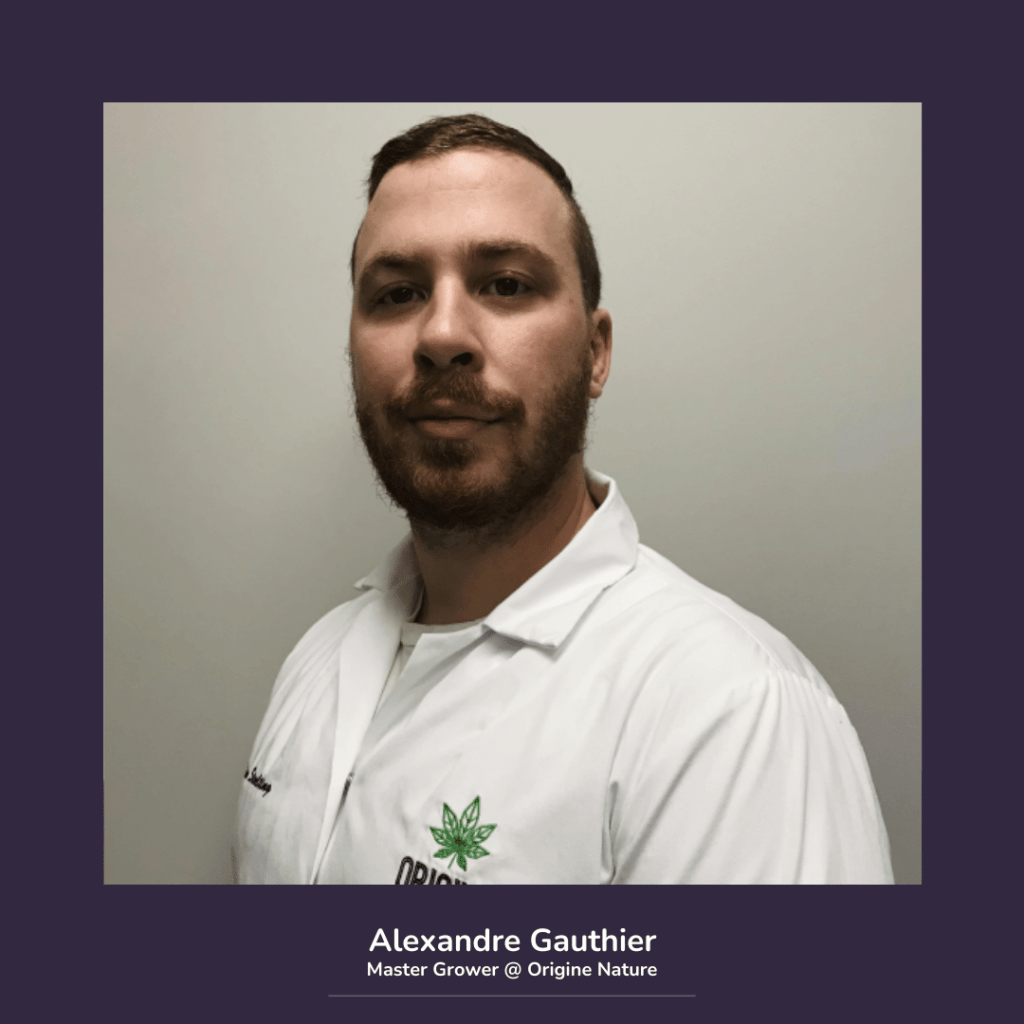
“Throughout my career, I had the opportunity to work with some of the most QAs. They taught me a lot. They showed me why the regulations were so important, and made me understand how to effectively work and communicate with QA staff.“
—– Alexandre Gauthier, Master Grower @ Origine Nature
Alexandre and Monica both share invaluable advice on how new and experienced growers can improve their relationships with QA and collaborate for success. Here are 7 ways that can help foster that relationship.
1. The QA manager’s role is to make sure that the company is complying to the regulations set out by Health Canada so that the license for the facility can be renewed.
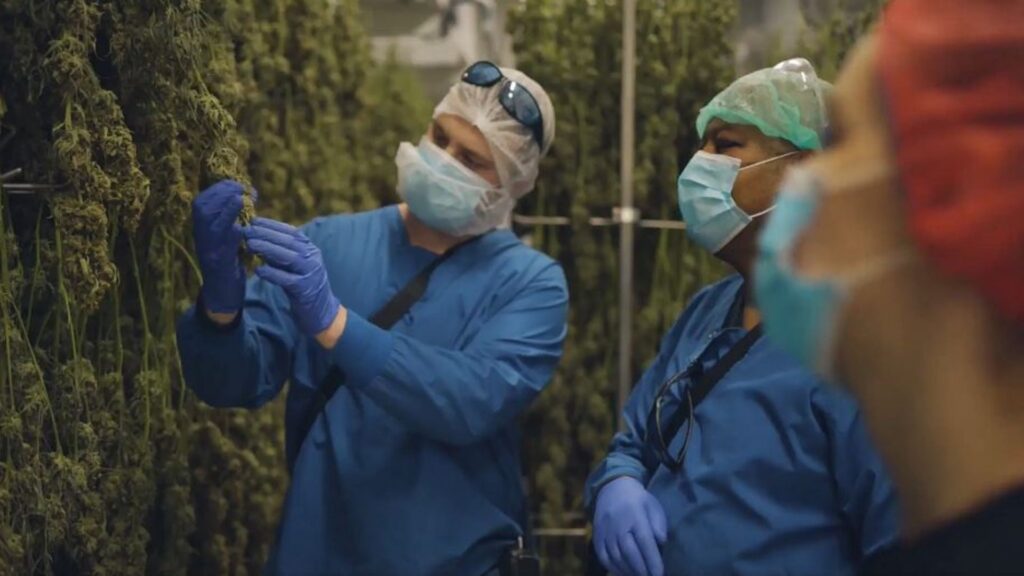
Canada is considered to be a global leader in cannabis, which is why the QA is not only doing their jobs for the sake of the company, but also for the community as a whole. Respecting the QA’s role would be beneficial for everyone, because they have a greater understanding of the regulations and their requirements, which in turn protects the company and their employees.
“A QA will never tell you that you’re not allowed to do something just for the fun of it or to waste your time or to make the process more complicated, there is always a valid reason that justifies their decision.”
—– Alexandre Gauthier, Master Grower @ Origine Nature
2. Work as a team.
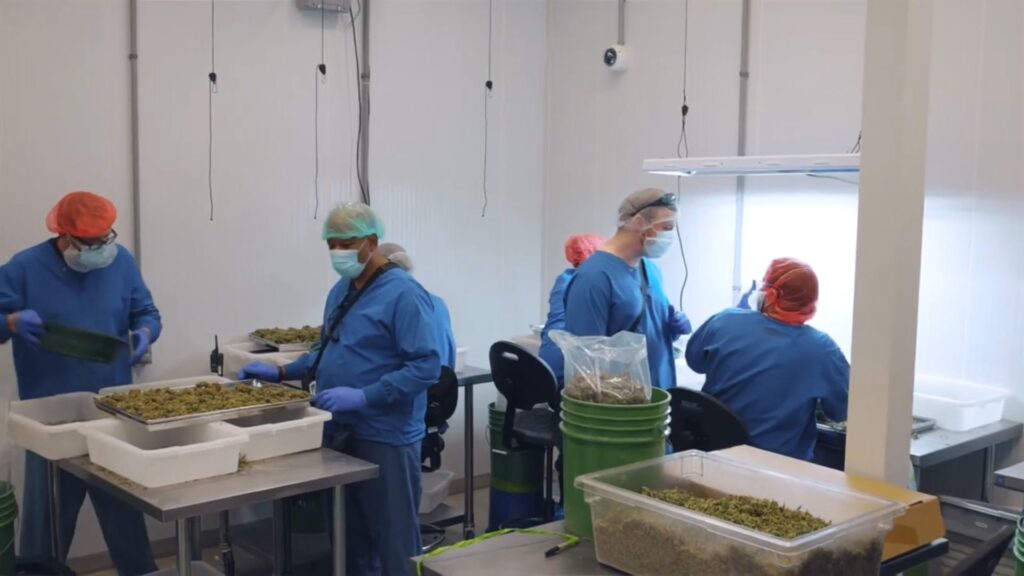
Teamwork and collaboration with other departments, whether it is QA, sanitation, packaging, trimming, or harvesting, are beyond important. ‘Master grower’ is simply a title and as Alex points out, being a leader means being an example to others by following the QA regulations and not giving them [bad] attitude. If you are a leader and you are disrespecting your QA team, then other staff will see it and may be inclined to behave in the same manner. It simply comes down to having a deeper understanding of the roles and obligations that other members of the company may have.
“A lot of master growers are afraid to say what they’re doing because they’re afraid their QA is going to stop them. But that’s not how you go about it. If you’re afraid to talk to your QA and you just do things behind their backs, then you are on the way to possibly losing the company’s license, because you don’t know the impacts of your actions.”
—– Alexandre Gauthier, Master Grower @ Origine Nature
3. Look out for your team members.
When working in a team, it is everyone’s responsibility to protect each other. A grower needs to understand that the QAP is the one approving and signing off on their products. If there is a problem, Health Canada and the regulators will not be coming for the growers but for the QAP, who put their names on paper and approved their actions. A non-compliance given to a company from a regulator because a staff member did not listen to the QA manager can tarnish people’s careers and ruin companies. Remember that the QA manager is there to help and protect you, so in return, it becomes your responsibility to also protect your QA manager’s reputation by adhering to the procedures that they put in place. It is in your best interest to work with your QA because you cannot get anywhere without them.
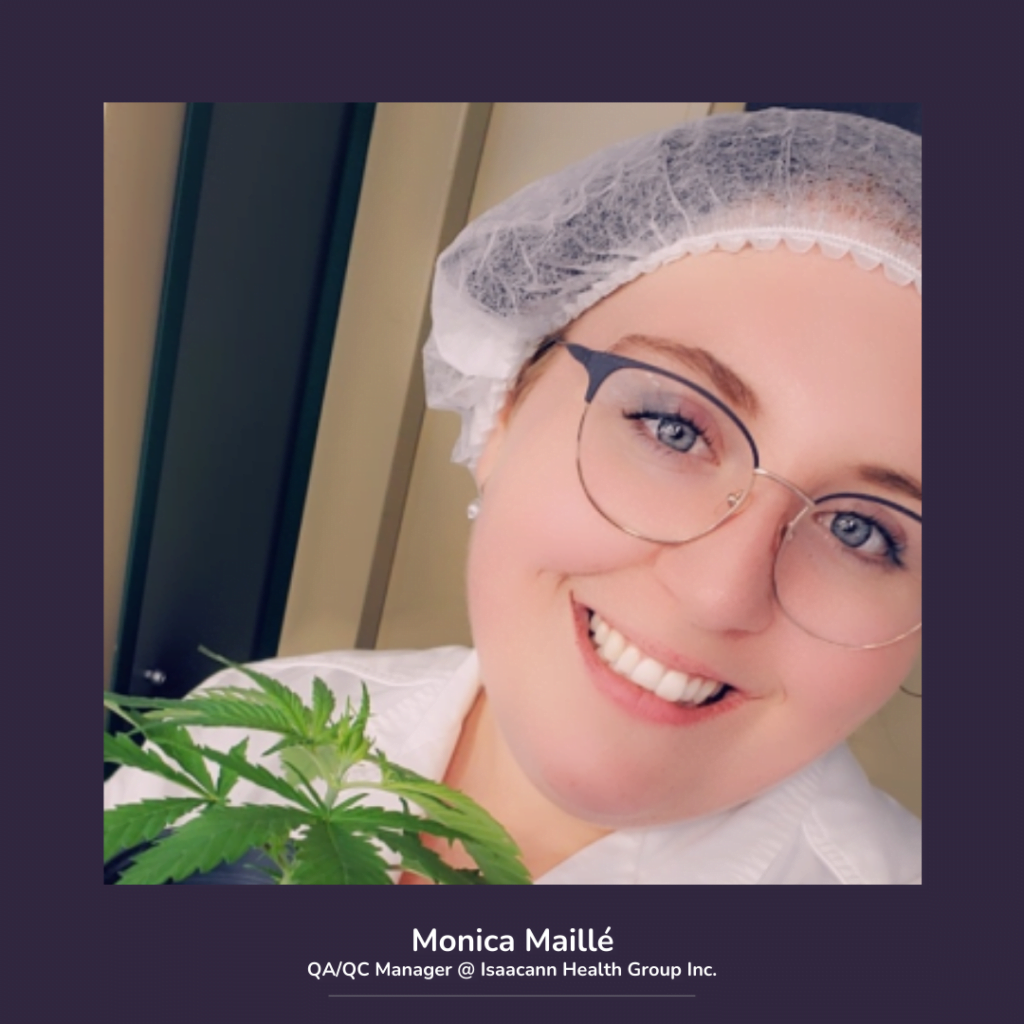
“You have an idea and you want to implement it, sweet. Let’s see what we can do to make it work.“
— Monica Maillé, C45 Quality Association Intern & QA/QC Manager at Isaacann Health Group Inc.
4. Never dismiss suggestions.
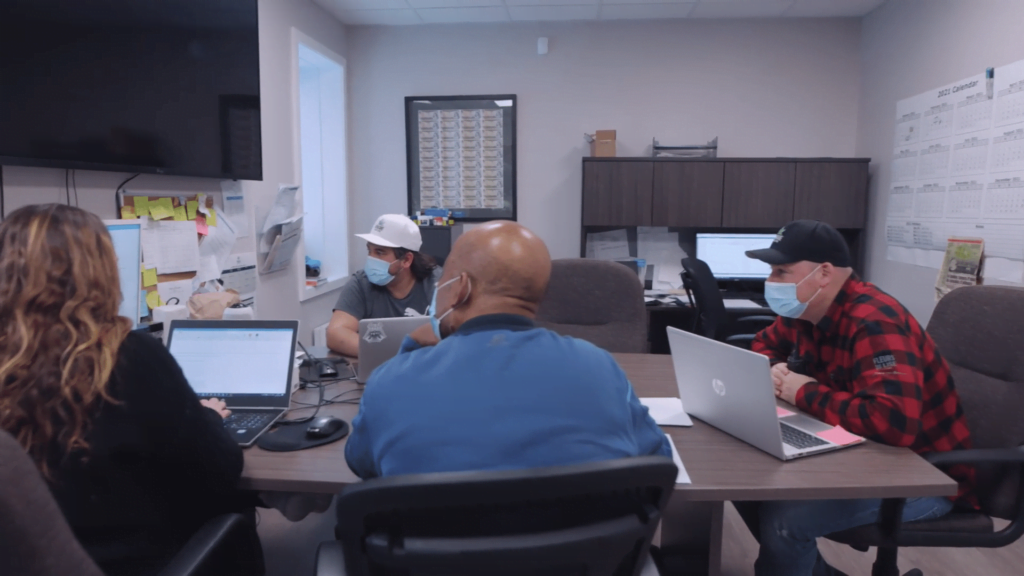
If you are a QA, it is important to hear out any problems brought to you by the master grower or other members of the team. This is important as they are the ones primarily working with the product and would have a better idea of what is needed to improve process deficiencies and to make staff’s life easier. The team should work as a whole for the betterment of the company to produce quality cannabis for consumers. Close collaboration means that the master grower and the staff need to adhere to the procedures set out by the QA. At the same time, the QA should listen attentively and be adaptable enough to review the information brought forward, ask questions if needed, and to suggest alternative ideas to ensure compliance. A QA manager will have to deal with lots of suggestions and perspectives, so they should not be a person that is always ready to say ‘NO’, as they should be looking for solutions to make things work. A company that is not willing to improve and try new things will become stagnant and outdated, so it all comes down to figuring out how to implement new ideas without breaking any regulations.
“I don’t believe in saying no. If Alex were to come to me with an idea or suggestion, he could bring it to me without hesitation. I won’t shoot it down right away. There’s lots of different things that we can look at, and there’s lots of things that we can try. I always want to make things work for myself and for the growers.”
—– Monica Maillé, C45 Quality Association Intern & QA/QC Manager at Isaacann Health Group Inc.
5. Learn from each other.
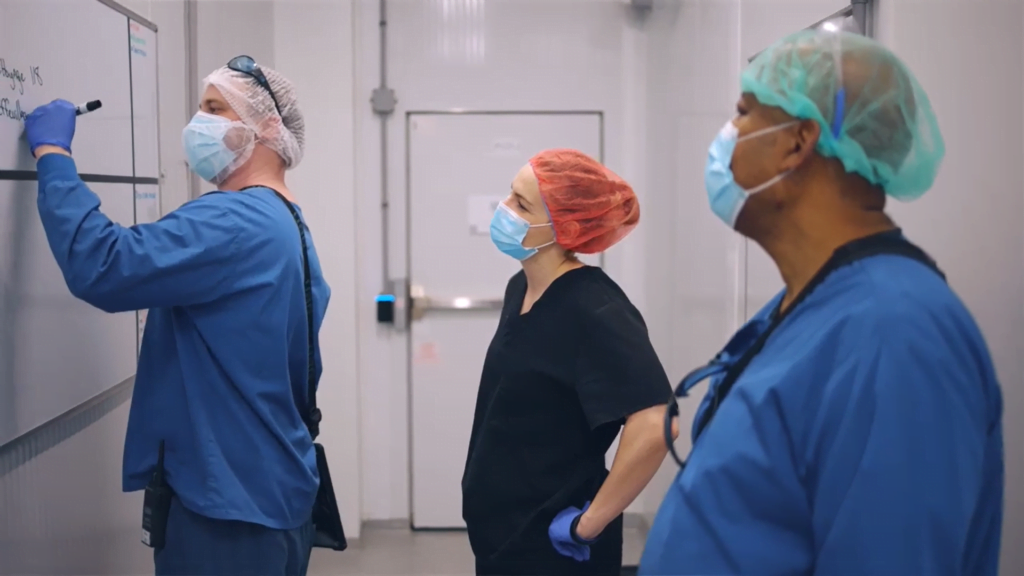
There are instances where the master grower and QA are not working well together and experience disconnect in their working relationship. It could be a personality problem, or a difference of opinion, as Alex points out. Many QA personnel transitioned from the pharmaceutical industry to the cannabis industry without necessarily having any previous cannabis knowledge. Most times however, the QA wants to learn how the process works and will observe the growers as they are working with the plants. The pharmaceutical industry tends to be more restrictive and regulated than the cannabis industry, therefore, staff transitioning from pharma to cannabis sometimes have higher expectations on certain things and are may go above and beyond what is required.
QAs cannot do this job by themselves, and that is where Alex says that a lot of master growers do not necessarily take the time to create relationship with their QA. It is important to sit down with them, talk to them about the plants, and tell them what they would like to see implemented and discuss roadblocks that they may be facing. It may be frustrating for a grower who’s not trained as a QA or has little to no experience with the Cannabis Act and Regulations when bringing up ideas. A bit of research and data to support your suggestion can go a long way. Collaboration between the master grower and the QA manager is imperative for the success of the company. The QA manager could learn a lot from the grower, because the latter spends more time with the plants in comparison to a QA, and the hands-on experience learnt in a grow room is often more valuable than learning about it through research. At the same time, the grower should listen to the advice given by the QA manager because they are the ones who undergone regulatory training and knows how to protect the company’s license.
6. Build rapport with your team.
It can be daunting for some to approach and build a working relationship with their QA, especially if there are issues that can potentially cause conflicts. There could be instances where the grower would not communicate with the QA and pushes through with their plans, only to be turned down later because the QA says “No.” The grower may then show frustration with the QA and the QA would potentially behave similarly. Ultimately, nothing gets accomplished and there would be an ongoing conflict between peers. Alex and Monica show that it does not have to be complicated. Regularly checking in with your QA is a good start to cultivate a good working relationship. Asking questions like “Can I do this?” and “If not, would it work if I do it this way?” will allow your QA to explain the requirements and will work with you to come up with a solution to make both parties happy. The regulations are sometimes very strict and might cause some frustration to staff. It is important however to remember that the QA is just doing their job and trying to remain compliant. Team building exercises and activities both in and outside of work are important to build lasting working relationships and to have a better understanding of the other individual. Even though we are living amidst the COVID-19 pandemic, we can still get to know our peers on a more personal level and develop great friendships; having friends as your coworkers can go a long way.
“Not everything has to be work 100% of the time. As long as we’re getting our stuff done, the ball is rolling smoothly, and the plants are healthy and growing, then I see no problem with harboring those different relationships and talking about something other than work. It is really good just to know each other on a more personal level and to be able to understand and to relate to what people are going through.”
—– Monica Maillé, C45 Quality Association Intern & QA/QC Manager at Isaacann Health Group Inc.
7. Try to understand what it is like to work in each other’s roles.
It is not enough for a QA to know what happens in the growing process. Aside from the formal training of concepts like IPM, soils, media, irrigation, fertigation, and so on, experience will be your best teacher, because you get to apply what you have learnt and see the problems firsthand. Working in only one area of the facility means you do not get to learn everything about what you are signing off on when the task is complete, so you as a QA have to go out there and at least help with the process to ensure that it is done properly. For example, a crucial process like sanitation has to be tightly controlled, because if the facility is not cleaned according to the procedures set in place, then there is risk of contamination and other undesired issues. The sanitation team often looks up to the master grower, and if the master grower has a problem the sanitation then the team must re-clean the areas that are unsatisfactory. If the microbial
count remains out of specification, then a total re-clean and sanitization must be done. The QA has to be involved when readings are out of specification, as it will warrant a Deviation or a CAPA depending on the Standard Operating
Procedures (SOP’s) established at your company. Records of Deviations and CAPAs are useful for determining trends when issues are recurrent. This also allows issues to be resolved through investigations and corrective actions.
On the other hand, the master growers need to know what it is like to be in the role of a QA manager. It is all about regulations, and there are about 300 pages of it. There are also guidance documents that are easier to digest, but both documents lay down the regulations clearly. If the grower needs to have some guidance on the rules or wants to contest the decisions of the QA, it may be best to consult the regulations and guidance documents. It is all about getting your mind to think from a QA perspective, which is beneficial for you as a grower because it can improve the way you do things and lessen the chance that you will run into trouble with the regulations in the future.
“If you are not trained as a QA, and you did not read the Cannabis Act or Regulations, then you cannot just decide what to do, even if it made sense in your basement.”
—– Alexandre Gauthier, Master Grower @ Origine Nature
General Aeroponics, a hypothetical company
Alex and Monica demonstrate how important it is for growers and the QA to cooperate by giving an example of a hypothetical company, General Aeroponics. The company is a nutrient supplier in another country, like Mexico. Now, let us say that Alex is a grower in a basement in Canada who absolutely likes their products because he gets amazing results. He gets their products from a local hydroponics store, but now he wants to use their products in his LP (licensed producer) application. However, he needed an approved supplier so he went with Biofloral, one of the best suppliers on the East Coast. Alex’s LP application got approved because Biofloral is an approved supplier, General Areroponics is an approved manufacturer, and their products are approved. Alex went on to ask his Biofloral representative to supply him with the MSDS (Material Safety Data Sheet), which is a document saying what’s in the product, its labels, and how it is intended to be used. Everything went well, so he goes to Monica, his QA in this scenario, because he would love to use General Aeroponics products for his plants. He gave her all the documentation, did his research, got his suppliers approved, and has the MSDS sheets.
In this scenario, Alex did not just tell Monica that he wants something then let her do all the extra work for no reason. He came prepared to see his QA. He already did a part of the work he could do to make her life easier. Understand that QAs are super busy. Do not just show stuff to the QA without doing your part.
For the QA part of this scenario, Monica would look at the label, the active ingredients, other components, the MSDS sheet of the product, and will verify its compliance with the cannabis regulations, the fertilizer act, and the fertilizer regulations in Canada. She will also check if the product was registered to be used on food crops in Canada. If it is on the list, then it is all good to proceed. If it is not on that list, she would have to go back to Alex and say that he cannot use the product. However, there can still be a chance to use it. If they contact the seller or supplier, they can ask if the company is able to get the product registered through the Canadian regulations for use on cannabis and on food crops. If yes, then they may be able to use it. Monica’s role is to not allow the product into the facility unless the company has registered the product under the regulations. The product may have been good based on Alex’s experience, but without the approval for use, he would not know if there is a concern for microbial or chemical contaminants that could create problems in the plant. There can also be residual solvents or manufacturing defects in the product, so the QA has to be sure that anything coming in is approved for use by Health Canada or through the fertilizer regulations.
The master grower may get angry and argue that the product has been getting good reviews everywhere and that everybody is using the products in the industry, but at the end of the day, you must follow what the QA says. Instead of getting frustrated and blaming the QA, the best approach would be to calmly understand the situation and think of solutions. He can contact General Aeroponics to explain his situation. He can tell them that he tried to get their product approved by his QA for use in a commercial grade facility, but could not because the product is unregistered. By doing his due diligence, the master grower can get better help from his QA manager, their working relationship will be strengthened, and he can get a better chance to use the product legally.
“So it’s as much human as it is regulation that some people get frustrated that they can’t even see that someone’s trying to help them, or they’re just trying to do the right thing. QAs want to see the plants healthy and growing. They aren’t scary. They want to learn. They are a part of the team. They want to collaborate. [The] QA did not make you reclean a room because she finds it fun, they did [it] because of the Standard Operating Procedures. Avoid the SOPs, get too many deviations, and then Health Canada will see you as a bad facility. Yes, you need to love your QA.”
—– Alexandre Gauthier, Master Grower @ Origine Nature

There are a lot of things to be taken into consideration when growing cannabis and the relationship with their QA could be one of the most important ones. Good coordination with our regulators ensures the success of our business. A little more hard work should be worth it in the long run, right?
Watch this session at The Grower’s Source Expo below.
Featured Image Credits: Origine Nature

Want to keep the discussion going?
Log onto The Grower’s Source App to ask a question of our group of experts, or to read up on the latest comments on this topic.
You can also engage your fellow master and hobby growers about many other cannabis topics on your Grower’s Source App.
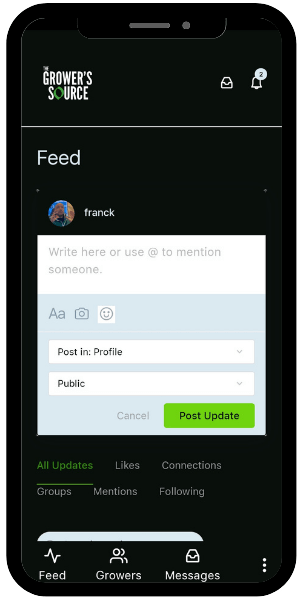
CONNECT
Connect and maintain relationships between you and other Canadian cannabis industry growers.
COLLABORATE
Overcome challenges together with your fellow growers, learn, develop collective knowledge and a global competitive edge.
GROW
Grow better, aim for sustainability, quality, and cost-effectiveness.





